Eczema Causes & Natural Remedies to Fix it
ec·zema (ek′sə mə, eg′zə-)
noun
a noncontagious skin disorder of unknown cause, characterized by inflammation, itching, and the formation of scales
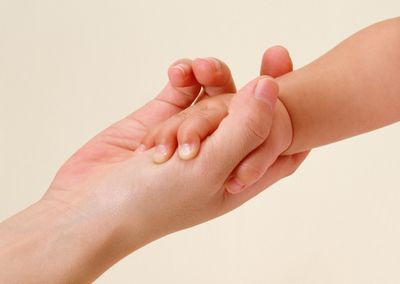
This is actually one of the most common complaints, questions, etc. that I hear, in relation to natural health remedies, and in response to my recent mention of my own eczema, I was asked about it once again.
How I do get rid of my (or my child’s) eczema?
First, for some more detailed definitions of eczema and the different types, check out this webpage.
Second, my brief disclaimer: I am not an expert on eczema. Forget even the fact that I am not any sort of certified medical practitioner (which is important to note), but you should also know that although we have dealt with eczema quite extensively as a family, I still do not feel that I fully have a grasp on all of the why’s behind it or the how’s of dealing with it. What can I say? I’m a work in progress. 🙂
What causes eczema?
Although you will get many varying answers on exactly what causes someone to develop eczema, one thing is certain. The dryness, scaliness, etc. of eczema itself is not the main issue (though it is definitely an aggravating and sometimes painful condition). It is simply a outward symptom of a deeper issue going on in the body.
Some of the many causes of eczema that we have either personally dealt with or that I have known about include (and note that this list is probably not exhaustive, but merely what I have learned so far):
- Allergic or sensitive reactions to particular foods
- Reactions to chemicals and toxins, in food products, body care products and cleaning/household products
- Reactions to environmental triggers, such as dust mites, mold, etc.
- Toxicity in the body that the liver cannot handle, and so eczema develops as the body tries desperately to flush out the toxins through the skin, which is one of the body’s major organs of elimination
- Dryness and irritation of the skin that develops due to dehydration (not enough water- this is far more common than you would think)
- Dryness, irritation and inflammation of the skin that develops due to insufficient good fats, particularly Omega 3 fatty acids (these good fats help to moisturize and lubricate our skin from the inside out, as does the water that we drink)
- Hormonal changes and imbalances
- A weakened or compromised immune system, and sometimes even high levels of stress or tension
As you can see, the causes can be extremely varied, which means that there is no “one size fits all” prescription for treating eczema. Unfortunately, this is the route taken by most (though not all) conventional or allopathic medical doctors.
The most common method of “treatment” is to prescribe some sort of cortisone (steroid) cream. Although this has the benefit of relieving the irritation and itching and bringing the skin back to normal (and it does help to temporarily bring relief, which can help the skin to heal more quickly), it doesn’t actually solve any of the underlying problems.
Cortisone or steroid cream is concerning because of two main side effects. The first is external, and that is that is actually thins the skin and ultimately makes it weaker and more susceptible to infections, etc. The second is internal, and what happens is that some of the steroid is absorbed into the bloodstream (remember- anything you put on your skin can and will likely be absorbed into your bloodstream!). Once there, it can alter hormone levels and can even cause reduced growth rates in children. For these reasons, we personally choose to avoid all cortisone creams in the treatment of eczema.
Now that we’ve discussed what eczema is and some of it’s causes, as well as how to achieve some relief, it’s time to start thinking about long term and underlying causes. I think one of the first things to do in really dealing with eczema is to start ruling out possibilities of cause, to try to narrow it down to the most pressing issue(s).
Here are some of the top issues that I would consider when addressing eczema:
1) Avoid All Processed Foods
Any preservatives, chemicals (like MSG), food dyes and artificial flavorings and/or sweeteners (Aspartame or Splenda) are likely candidates for causing irritation and reaction from the body, which often expresses itself outwardly through eczema. The truth of the matter is that these are not “foods” but rather chemical and often toxic substances, which our body’s are not meant to consume.
When we eat foods containing these things, it’s not uncommon for the body to have a bit of a “fight or flight” reaction, and to treat the unwanted substance as a foreign invader. This can result in skin outbreaks and irritations, upset stomachs, digestive issues (gas, bloating, cramping), aches and pains, headaches, fatigue, weakened immunity, etc.
Most packaged and processed foods contain at least one or two types of chemicals, usually for preserving purposes, but also for enhanced taste, color, texture, etc. One of the best things that you can ever do for your health, nutritionally speaking, is to move away from foods that come off of store shelves, and towards whole foods- meats, whole grains, eggs, vegetables, fruits, good fats and oils, nut and seeds, etc. A really good rule of thumb is to read the ingredients on foods, and if you can’t pronounce it or have no clue what it is, don’t buy it!
2) Look At Hydration
Are you drinking enough water? Getting enough good fats? These are common reasons for dry, itchy or flaky skin, and can even cause or exacerbate other skin conditions.
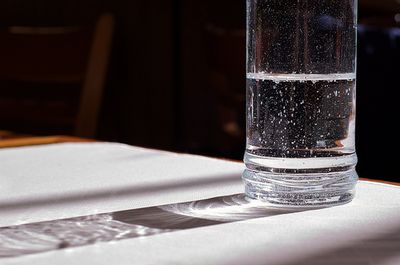
Good hydration begins on the inside and works its way out. Read this excellent post to learn more on proper hydration. A good thing to keep in mind is that if you’re feeling thirsty, you are already somewhat dehydrated. The time to consume more water is before you really feel like you need it!
Another important angle of this issue is that our cells are not only hydrated and nourished by taking in enough H20, but also by sufficient intake of good fats, especially the Essential Fatty Acids. EFAs are necessary for a huge number of bodily functions and systems (too many to mention, but read the above link), but also for maintaining healthy hair, nails and skin. When our body is lacking in sufficient EFAs, it will begin to show outwardly through dry and easily irritated skin.
In my own experience, I have seen the effects of this enormously. As soon as I began to supplement with flax oil several years ago, I saw improvement in my dry skin and eczema. When I switched over to cod liver oil, I noticed even more improvement. I can honestly tell whether I have been faithful to take my supplements by looking at my skin. It tells me loud and clear that I have forgotten a day or two!
Have you tried an EFA supplement, such as cod liver oil (my top recommendation), another type of fish oil, an Omega-3-6-9 blend, or flax oil? I would highly recommend that you do!
3) Consider What’s Going On the Skin
It is a very worthwhile activity to examine the ingredients in your soaps, shampoos and conditioners, lotions and creams, anything you can think of. Unfortunately, since many toiletry and beauty products do not actually list their ingredients on the packaging, we are often unaware of just how many unnatural things are in the stuff that we use! Chances are, if the ingredients aren’t listed, it’s probably not the best product to be using.
More importantly, our skin is not just a pretty covering for our body, but rather a major organ. It absorbs what we put on it, and many of these substances actually enter our bloodstream!
For those needing a good starting place, I would suggest the Skin Deep Database. You can use it to look up the brands and products that you are currently using and find out whether they contain concerning ingredients or not. If so, then you can also do searches for alternatives that rank lower (meaning that they have less potentially dangerous ingredients).
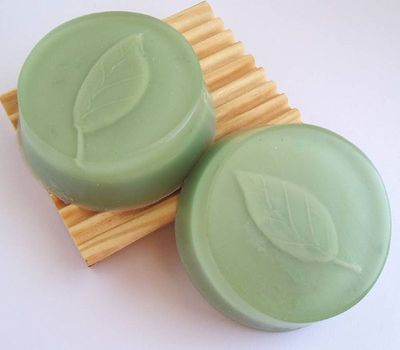
Move towards the most simple, natural alternatives that you can find. Here are some ideas:
- This is the approach that we take in our home. The post that I’ve linked to was written over a year ago and since then I have simplified what I use even more and love it. See my post on going no ‘poo (no shampoo), as well as the oil cleansing method that I use for my face. Coconut oil helps to round out my skin routine as a moisturizer (face and hands and sometimes legs). I’ve also since switched over to using this mineral makeup, which is fantastic (and make sure to order some free samples)!
- Instead of regular soaps, try finding a castille (sold at many health food stores and coops), natural olive oil or goat’s milk soap. You won’t want to switch back, I promise!
- Try making some of your own simple recipes! Here’s one for shampoo, and another for deodorant.
- Keep baby products very minimal and natural. I only use a couple drops of castille soap in the bathtub, the occasional bit of olive oil or coconut oil for dry or itchy skin, and diaper creams like Weleda or Burt’s Bees for rash.
Do any of these causes strike a chord with you? Have you found any of these to be factors in your own (or your family’s) eczema? What changes did you make to see improvements?
Over the past month or so, I’ve been sharing on the topic of eczema, and how to naturally and holistically approach it in order to bring both relief and healing. If you missed any of the past posts, here they are:
4) Try Food Eliminations
Eczema as a reaction to a food allergy or sensitivity is very, very common. Some of the most common food suspects are: Wheat, eggs, dairy, soy, shellfish, tomatoes, strawberries, and citrus, though there can be other culprits as well.
Often, these are not true allergies, but rather something that the body has become sensitive to through poor digestion, improper preparation or simply an inability to properly assimilate that particular food. By removing these foods temporarily from the diet, and working to heal the digestive system during that time, many of them can safely be reintroduced with no further problems.
If you have access to a good Naturopath, I would highly recommend a visit to one. They are able to provide detailed food sensitivity testing (such as a Vega or other similar test), and this often highlights sensitivities that you might not have otherwise considered. An alternative would be to have conventional allergy testing done.
If none of these options are available to you, or you would prefer to just do it yourself, you can do an elimination diet (see this
for a fairly good explanation of how to do an elimination diet). The basic idea is that you eliminate all common allergens for a period of time, and then slowly, one by one, reintroduce them and watch carefully for reactions.
While undertaking a diet like this, it’s important to strengthen the body and the immune system, and some good ways to do this are to: avoid all refined grains and sugar, take a probiotic supplement (such as acidophilus, or even better, one that contains several different strains of good bacteria), focus on eating nutrient-dense foods and also on getting plenty of fiber and water for good elimination. All of these things will help to heal a weakened digestive system.
5) Consider Detoxification
Though we are unclear of exactly where the toxins have come from, this seems to be one of the major issues for my son. We do our best to avoid toxins in our home, but we are still continually exposed to them through the water supply, the air, the foods we eat (we don’t eat perfectly, 100% organic, and even if we did, there are still traces of pesticides and other chemicals from the environment that we can’t control), etc. His body seems to have a particularly hard time flushing those toxins out, so that has been our main focus in his treatments.
Supporting the liver, gallbladder, and digestive system are very important, which we did using homeopathics and probiotic supplements. We’ve also used blood detoxifiers, which included more homeopathics and certain foods that aid with this (especially leafy greens, anything with chlorophyll and also chlorella). We’ve taken out foods that he was reacting to sensitively, to allow his gut to heal, and to give his body one less thing to have to deal with while trying to flush the toxins.
When you have to take this approach, know that it usually gets worse before it gets better. We’ve been working at it for about 3 months (less intensely in the last month), and we’ve seen it flare up much worse during that time. Now it’s starting to calm
down a lot more, but we also realize that the toxins aren’t all gone yet. We’ve recently started him on a couple of new things and are continuing on again with some previous ones, so (as I expected) it briefly flared up again, but I am hopeful that we are starting to see it heal more thoroughly.
**Just a note on this- If you are unsure of what you are doing in either food eliminations and especially with detoxification, and quite frankly most of us are (myself included), I would work with a trusted naturopath, certified nutritionist or herbalist, or naturally-minded doctor on this, especially when it is with an infant or child!
This was the last of the series on eczema. Obviously, it’s not going to answer every question or concern, and is not completely comprehensive in offering solutions, as it is only from my own personal experience and study. I hope, though, that it’s given more food for thought and perhaps some ideas for next steps to take. Thank you for all of your wonderful feedback throughout the series!
Any thoughts on these last two underlying causes? Have you dealt with either of these in particular, and what was the route that you took in addressing them? Was it successful?
We’ve talked about some of the causes. Now, what can be done about it?
Obviously, one of the first concerns is to bring down the level of discomfort. As an eczema sufferer myself, I understand this well.
For me, my eczema comes in two forms- in extremely dry, cracked and bleeding fingertips (that barely feel like skin anymore- electronic sensors that respond to the touch of a finger sometimes will not register when I touch them!). The other form is in very itchy, scaly, red patches along the sides and bases of my fingers and the upper part of my palms, with very small fluid filled bumps that develop. It is not fun, so believe me when I say that I sympathize and feel your pain! 🙂
A few basic things that have brought me (and my kids) comfort and just might help to bring some relief to you and your loved ones as well:
Constant moisturizing.
One of my current favorites is coconut oil. Yes, the stuff I cook with- it only takes a very small amount and it has
anti-bacterial qualities. It rubs in well, isn’t particularly greasy and really does feel good on the skin
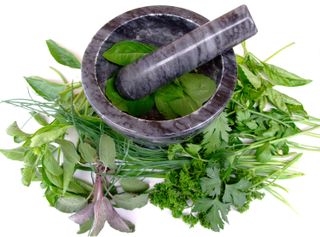
I also use a wonderfully soothing Calendula/Chickweed herbal cream that my naturopath recommended for my son, but I found it so helpful that I started asking for my own. Most health food stores carry some version of a Calendula cream, and here is a link
to a homeopathic one I found on Vitacost. It even helps, though, just to use any more natural lotion (try to avoid chemicals, fragrances and color as much as possible) to keep the skin more protected and comfortable.
Aloe Vera is another great and simple choice. You can either use it straight from the plant, or buy a high quality gel. I have used JASON’s 98% Aloe Vera Gel, though I am hoping to get myself a plant, because I would prefer to just use it that way.
Another homeopathic cream that I haven’t used in a while, but I found very helpful as well, called DermaMed. It’s a little bit pricier, which is why I don’t buy it often, but check out the website and you can see what it contains and why it’s effective. I really did find this cream to be so relieving on my worst days. I used the All-Purpose, but they have several other types for specific conditions.
Avoid hot water and too-frequent bathing.
I know there are lots of you out there who are cringing at those words- not shower everyday? Ditch my kids nightly bath?
In my experience, the more I avoid water, especially hot water, the better. Limiting my showers (I do every second day) and also my kids baths is very helpful. In fact, my daughter in particular seemed very sensitive to the chlorine in the shower, but once we cut her baths/showers down to twice a week, things really cleared up. Part of the issue is that the warm water opens up the pores in our skin, and the heat also releases chemicals such as chlorine that are in the water. This means that chlorine and it’s other buddies have very easy access right through our skin barrier, and this is not a good thing!
I am also adamant about using rubber gloves for all household cleaning, dish washing, etc as well as gloves for gardening. Even though I use natural cleaning products and do my gardening organically, there are still so many things that can irritate already tender, dry or itchy skin. Since I already struggle with eczema on my hands, it only makes sense to protect them as much as possible, so that I don’t exacerbate what’s already going on.
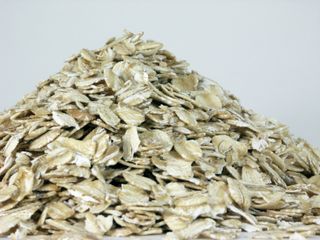
When you do bathe…
(See, I still recommend bathing 🙂
There are many things you can add to a bath, that will help to soothe and nourish that dry, itchy skin:
- Evening Primrose Oil – Just pop open a few capsules into the bath, as this oil is particularly soothing for eczema and other forms of dermatitis
- Olive, Almond or Coconut oil– A few teaspoons will help to add moisture and softness to dry skin
- Oatmeal– Traditionally known for soothing itchiness and calming down inflamed skin, it’s a bit more effective if you grind it up in your food processor or coffee grinder first, rather than just dumping in the flakes
- Baking Soda– Isn’t it amazing just how many different uses baking soda has? Sprinkle some in to relieve irritation and itching plus add softness to skin
- Essential Oils– A few drops of any of these oils can be helpful, as they are all noted for healing and soothing skin conditions: Rosemary, Chamomile, Hyssop, Pine (note- avoid rosemary if pregnant)
Those are just a few of my suggestions for relieving some of the discomfort that goes along with eczema and other skin conditions. Next, I’ll begin to talk about some ways to address more of the deeper issues with long-term solutions.
What are some of the best, natural ways that you have been able to bring relief to eczema?
I’d love to hear from any readers who are dealing with (or have dealt with) eczema personally or in their family! Particularly, if you have worked with a naturopath or any more naturally-minded practitioner, what types of underlying causes have you discovered?

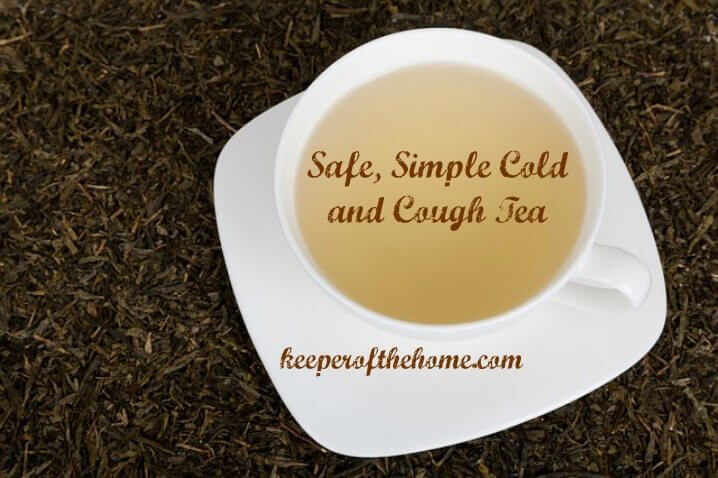
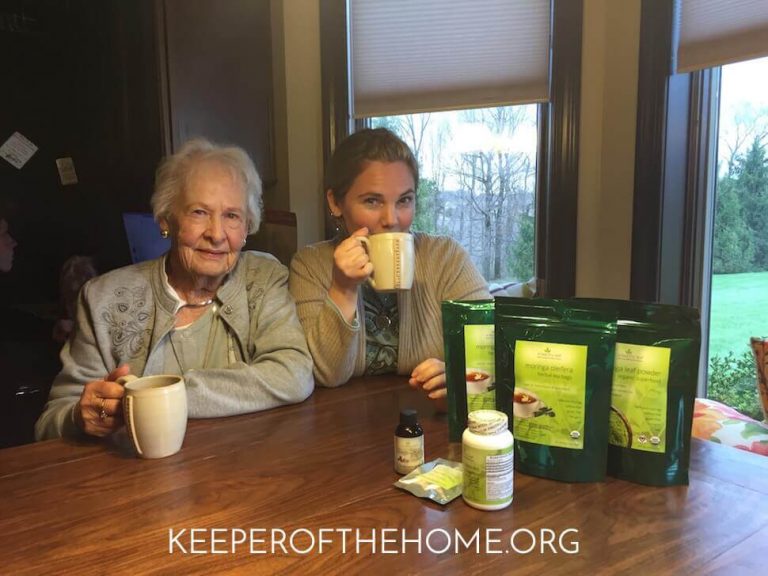
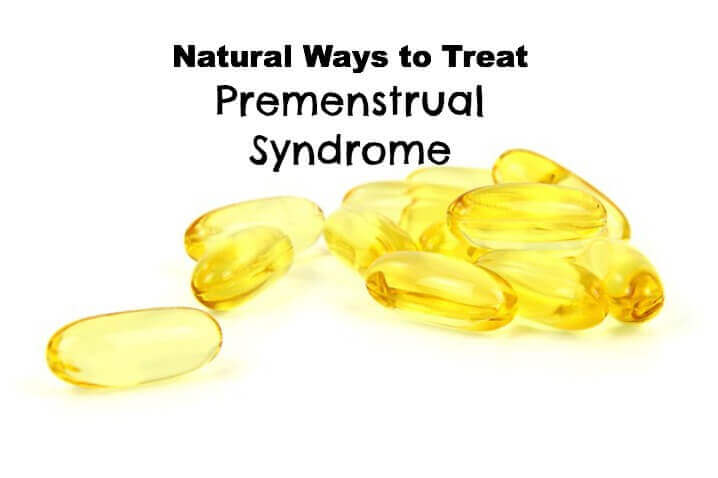
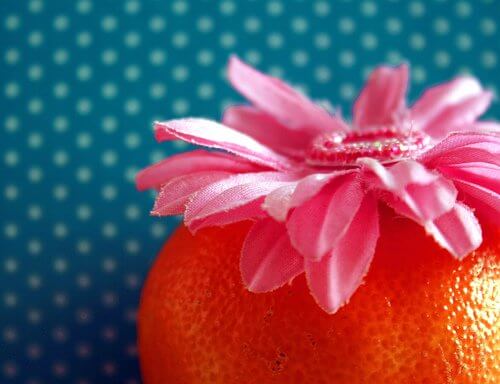

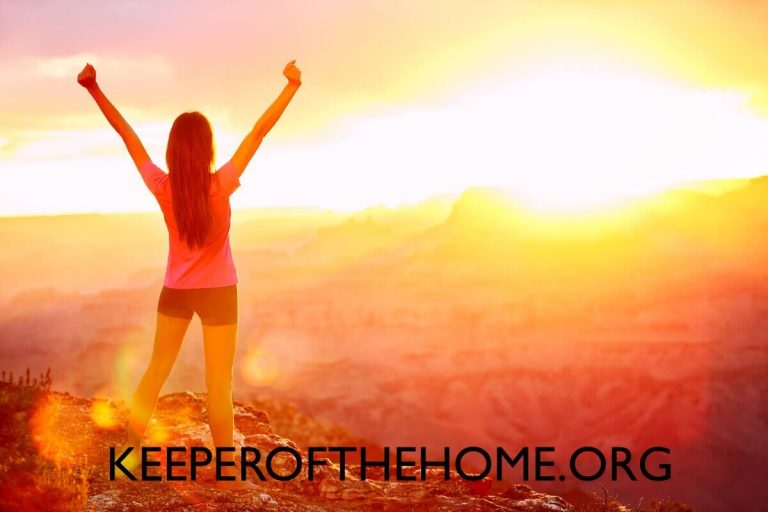
Both of my littles have eczema. My 5 yo, we found out, was food dyes. She’s 99% clear when she gets no food dyes. The baby still has it on his little feet, but I think it’s the carpet.
I posted about it on my blog some time back.
http://simplemommy.blogspot.com/2008/04/interesting-day.html
Since, we’ve eliminated almost *all* food dyes. It’s a very difficult process. You begin to find them in things you would not expect.
BTW, it’s funny that our pediatrician was the one that actually figured it out, not a naturopath. That was the next route. I had looked into it, but the ones around here are way expensive. 😉
Dealing with it. Every. Day. My 16-month old was born with eczema. As in, left the womb with reddish, rough skin. Not sure how that fits in with some of the possible causes. Could he have reacted to MY stress? To something I was eating?
We do have a steroid cream that I use very sparingly. I have used herbal salves created by my aunt {a certified herbalogist}, but it wasn’t as effective as I would’ve liked. For us, aloe seems to work the best. Not store-bought, just the actual plant that we break open and spread onto him. I have it cut up into little pieces and frozen {someone gave it to me} and I just dethaw what I need. We usually cover that u p with aquaphor or vaseline {if the Aquaphor has gone missing}. I’ve started washing his laundry separately with a dye-free detergent & just using vinegar as a fabric softener.
Can’t wait to read more on your eczema series!
I have dealt with eczema for most of my life, so for over 21 years. When I was younger, it wasn’t too big of a deal except during soccer season, when having sweaty shinguards up against my legs made them break out horribly.
It seems to have gotten worse the past couple years. One thing that has been a factor, I believe, is that when I lived with my parents, they had a whole-house water filter that filtered out the chlorine and other impurities from the water. When they first had it installed, we noticed a difference with my skin, and since moving to college and now in an apartment with my husband, I believe this is one of the factors contributing to it getting worse.
I have used prescription and OTC steriod/cortizone creams and while they help at first, eventually the eczema returns, often even worse than before. Now I am trying coconut oil, as I have read that can help, but it only does so much. And working in an office environment, I am beginning to experience some of the “social-awkwardness” that comes along with eczema, people asking questions, thinking it is contagious, etc. So now, more than ever, I want to get it under control.
I look forward to your next post! In the mean time, I’ll try increasing my water intake, as that can only help and not hurt!
Both of my little girls have this skin problem. We fight it all the time. 🙁 They both broke out with it (noticeably at least) when I weaned them from breastmilk-before then, if they had it, it was very minimal and not noticeable.
We are in the process of doing allergy shots for my (almost) 9 year old. I think it is getting better. (She is allergic to ragweed pollen and dust mites) Also, she fights me some on keeping it moisturized.
My 2 year old…who knows what is causing it. I won’t have her allergy tested for a while (it’s slightly traumatic and takes the better part of a day plus going back weekly at least for the shots).
We did rip our carpet out and put laminate in our house (to reduce the dust mites).
As for the cortisones…I threw ours out. It BLEACHES the skin!!!!!! It’s horrrible. And it is not a cure-all anyway.
Borage seed oil (gamma-linoleic acid) is great for this! About a month after we started giving this to our son, his eczema cleared up. His eczema was so bad that he would scratch in his sleep and bleed from the scratching. After a couple of years on the borage seed oil, we decided to go without for a while (to see if he’d outgrown it), but his eczema slowly started coming back after a couple of weeks.
Before we discovered that, we would use Elidel occasionally to treat the eczema, but it would never get rid of it (just keep it down, not itch so much).
We also make our own laundry soap and use white vinegar for fabric softener to help reduce irritation. We’ve considered a water filtration system, but that’s not in the budget right now.
We have battled eczema with our 4-yr-old daughter since she was a few months old. Of course our pediatrician has prescribed every possible steroid cream available…we’ve tried everything. Nothing has worked. I decided to research more holistic methods to treat her skin condition, and discovered that many people found relief from Vitamin E oil and coconut oil. I have been using these oils for several weeks, and she has found some relief, but is still struggling. I suspect there is some sort of food intolerance that is contributing to this problem, but I’m not sure what to do from here. I should probably start eliminating foods from her diet one at a time to see if that helps. I’m looking forward to hearing your ideas in Part 2!
My son has always batches and patches of eczema. He is sensitive to what I am thinking is dairy and high amounts of sugar. I watch these in his diet. When I had him at the naturopath when he was younger I had him VEGA tested to find out more sensitivities. We put him on asidophilis daily and Udos oil. I also put a non-steroid cream on it. There is brands at your health food store. They come in tubes like polysporin. Also, I found a good find from clinique. It is called comfort on call.
http://www.clinique.com/templates/products/sp_nonshaded.tmpl?ngextredir=1&CATEGORY_ID=CATEGORY22228&PRODUCT_ID=PROD14201
My son has had a bad eczema on the back of one of his legs in the crevice under his knee and on the side, I have been putting this on it intermittently with cream from health food store and it is going away. It is not a fast process, but it is working.
I get eczema of the eyelids, right on the lash line and I have been using the same process as my son and it is gone!
Good luck
With the exception of some dry skin on my eyelids, i haven’t dealt with this problem. However, i like that you underline the fact that docs have a tendency to treat symptoms not cause. And that to fully address this issue you need to address underlying cause. I appreciate this so much!
Tho not to the severity of eczema, dry skin is an issue where i live & i had tried everything to treat it. Between internet research & my own creation, i found this for treatment: 1 part vegetable glycerin, 1 part distilled water, 4 parts aloe vera juice. (I also add a few drops of Grapefruit Seed Extract as a preservative.) This is like a miracle for dry skin. I put it in a spray bottle & spray it on because it is so liquid.
Please don’t think i equate dry skin with the problems of eczema. I know they are not the same, but this might help a small amount of discomfort.
I’m looking forward to these posts! My 16 month old has really, really bad eczema. But, she comes by it honestly, because I dealt with skin issues as a child/teen and only since I was about 21ish have my symptoms subsided (not sure why, either). We just got some cream for her recently, because our doctor wanted to give her steroid shots (SERIOUSLY!), and she really, really needed relief. Poor girl’s body was covered in a red rash that seemed to be getting worse and worse by the day. We’ve got her an appointment to see a new doctor to help us determine what is the root issue, but that’s not until the end of April. So between now and then we had to get something to help her. Right now we’re using Aveeno (any thoughts on that brand??) and the rash has cleared up. I don’t want to keep using it, but she’s had such relief that I hate for the rash to come back before our doctor’s appointment.
Something we have found helpful -which is very simple, all our children has mild eczema with my oldest have pretty bad occasional outbreaks. Lots of moisturizer – and less baths and when you do bathe them no soap except for hair and bum. Some parents bathe their children daily and that is really drying for their little skin. We only bathed them every third day and with each one, when they were have skin issues, noticed improvement with just that change. Their bum, which is the area that primarily needs cleansing is getting just that with each diaper change so over cleaning can actually cause unnecessary dryness.
Figuring out my son’s food allergies did help to clear up a lot of my son’s extreme excema. We found vaseline creamy right after a bath with cotton jammies worked the best. Also there is no need for cortisone creams anymore. There are now prescription non-steriod creams that work amazing. Elidel for example. Spectro Kids also has a new excema cream out that has been working beautifully.
Hope that helps someone.
Laura
I am very excited to hear what you have to say about eczema. My son who is 10 months has suffered severely since he was born. I’ve taken him to two pediatricians and one dermatologist. They all put him on steroid creams. I’ve tried several organic lotions and making my own cream out of coconut oil and shea butter, none of which has worked…except for the steroid creams, but once I quit using them the eczema flairs right back up. I’ve also tried only using oatmeal baths and switching to different laundry detergent. My son has eczema from head to toe, literally. I’ve considered going to an allergists but worry about all the shots. I’ve also tried to take him to a homeopathic Dr. but, long story short that has happened and I’m not sure if it will. I feel helpless, and it is extremely upsetting to see your child suffering.
I don’t have this, but my sister gets a terrible contact dermatitis with any kind of metal other than gold or silver touching her skin–welts that will become open sores over time. Nickle is particularly bad and it’s in things like jeans buttons, etc., you wouldn’t think of. (My sis had a terrible rash on her stomach before we finally put that together.) My dad & brother have this too; we think it might be something in their sweat. They avoid metal, but when they can’t they paint the part that will touch their skin with clear nail polish. Don’t know if this helps anyone, but thought I’d toss it out there.
Any insight on diaper eczema? We skate on the edge of it at all times. It’s why we use cloth, among other reasons.
I have had exema on and off since I was a child. As a child I was given cortisone to use (family did not know it was bad) and it never helped. I seemed to be free of it for a lot of years but then being pregnant and having babies made it worse again. I think it has to do with a few things for me: hormones, not enough water, not enough EFAs and stress. (I figured these things out on my own, I tried talking to a naturopath and found that while nice, the ones I could see cost a lot and didn’t help much, unfortunately, although I am sure there must be good ones out there of course!)All of those things above coincide with pregnancy and having babies! I had an awful patch of it on my hand that came when my first baby was 3 days old. I finally changed a few things to do with the causes I mentioned above and also used some homeopathic cream (the first one I tried didn’t work, the second one did) and it worked. Now I get a tiny patch of it starting now and then, use that cream, and it goes away.
However the same cream does nothing for my 3 year old. She has exema between her legs (I thought it was a yeast rash for a long time) and it came around the same time she was toilet training. We finally figured out that it might be the urine- she was not wiping as well (and us helping was not as affective as when she was in diapers and we would wipe it with her lying down). We upped her water intake and helped her wipe better and there is only a tiny bit of scaleyness left there. Its been about 3 months since we upped the water intake for her. I think that made her urine’s acidity less.
My SIL had exema and someone told her to try taking more Vitamin D. She always would get exema in the fall and it would last until the spring. She now takes Vitamin D and the exema disappeared altogether. She previously was only getting whatever Vit D is in foods (I know she drinks milk that has Vit D in it and such).
I know someone else who had exema until they got diagnosed as celiac and changed their diet.
I wish it wasn’t so confusing. What works for one person doesn’t work for another I guess!
We have had lost of issues with excema with my 3 year old. At first it was due to some food allergies mainly milk but now it seems that has cleared up and now it’s environmental stuff. Every time she goes out side she comes in all broke out. I HATE IT. My husband has horrible environmental allergies but doesn’t have excema. Everything we put on her topically burns and I don’t know what to do. It’s so frustrating!
I developed eczema on my legs as a teenager. I used to have horrible breakouts and they would even get infected. I had to use a steroid cream daily. At 22, I stopped consuming anything with aspartame in it ( I had been a big diet soda drinker during my teens). My eczema cleared right up! So I know that certain foods/chemicals can be a trigger for me, and avoiding them helps a lot. But…
It is still lurking there, hidden away…This pregnancy has brought it out again, and unfortunately nothing has made it go away, I don’t think it will until delivery.
I wish I could figure out the root cause of it.
We have treated excezma with diet… no sugar or starch and with RoBathol… which is an almost ALL natual product… I now use it with every bath time, except in the summer when the kids are getting ample Vit D and moisture.
Supplements are great… Vit D, Vit C, Krill Oil..which is available through mercola.com…
I lvoe that you are seeking natural methods!!!
God bless-
Amanda
I am 24 and have always suffered from bad eczema. It was gotting better as I aged but the last few years I have hit a point where nothing seems to help. It’s not as bad as when I was a kid, but back lotions and creams “helped” and now they don’t so it almost feels worse (doctors moved me up to higher and higher doses of cortisone, then other steroids until almost nothing works and the stuff that does, I won’t take, like you said, I want to work from the inside out and not just treat the symptom with a steroid, especially ones so strong)
My diet is pretty good (I’ve been moving in the NT direction for the last year and a half or so, little by little) and was hoping many of the changes I have made would help but so far I don’t see much of a difference. Eliminating artificial sweeters, reducing sugars, more water and probiotic foods, nothing helps. This weekend we are going to look at a goat farm for a raw milk source although I’ve been thinking about going non dairy for a few weeks and seeing how that works too.
Externally, using the Oil cleanse method did help and I don’t have many breakouts on my face anymore (my eyelids used to be the worse and most visible spot I would get).
Mostly I just deal with it. Avoiding external triggers by wearing natural fiber, using only “all free and clear” laundry detergent and no dryer sheets. Then using oatmeal baths and lots of lotion to ease the pain, etc.
I can’t wait to hear if what has helped you guys out.
Both of my kiddos and myself have dealt with all of our lives. I find that dehydration and hormone levels are what cause my flare ups. Lots of water and Aquafor will usually clear it up in a matter of day. My oldest son rarely has flare ups but our youngest son has constant dry, bumpy legs and arms. We have yet to find anything to really clear it up completely. The steroid creams don’t even seem to do the trick and I hate using them on him! So, I will be interested in seeing what you guys do!
All 4 of our kiddos had this at some point or another. For the first 3 we were pretty accepting of whatever the doctor would give us. Usually in a week or 2 we would stop giving them the prescription though because we didn’t find they worked. Usually for us the cause was a combination of things…shampoo/soap and stress. We began taking an outbreak as a pretty good indicator that we needed to slow things down around here. With our 4th I was not as willing to just “give her a prescription” so I sought out natural remedies. Aloe was by far the most commonly recommended. I purchased some Burt’s Bees Soothingly Sensitive Aloe and Buttermilk body lotion. (I have no affiliation to Burt’s Bees…it is what I saw at the store that didn’t seem to have any of the stuff in there I DIDN’T want ). By the second application, it was already looking and feeling better. For one week, I put the lotion on her 3 times a day (one being after her bath) and by the end of the week, it was practically non-existent. I still keep the bottle right by my chair in the family room but I haven’t had to use it since. Your mileage may vary (but it sure worked for us).
My nine-month old used to have it in different areas since he was a newborn. Now it’s almost non-existent.
I use a homemade cream, and saw the improvement on day one. The cream is made of coconut oil, beeswax, blended oils (almond, apricot seed, avocado), water and glycerin. I read somewhere that avocado oil is a good remedy for eczema.
Eczema is my nemesis… I have had it for ages (my dad also has psoriasis) and my kids seem to have it in varying degrees with varying causes. Mine was mostly on my scalp and around my hair line. Since I’ve stopped shampooing and switched to baking soda I haven’t had any issues!!
My oldest had it on his face terribly when he was about a year old and we figured out it was an immune system issue, once we got him on the right supplements and diet, he cleared up and has no issues now at age 5. He doesn’t even need the supplements, just a multi vitamin.
#2 has a sensitivity to milk and milk products and it’s fierce. He would wake up in the mornings bleeding from clawing it during the night. No amount of lotion, cream, wash or prescription even came remotely close to relieving it. We did an elimination diet and figured out it was dairy. Unfortunately, raw milk isn’t an option for us, so he’s currently on rice milk and now can have small amounts of dairy cheese and yogurt.
#3 has yet to show any signs, praying that she won’t ever develop it.
Looking forward to hearing what’s working for you guys.
My son has struggled w/eczema since he was 8 months old…he’s 23 mths now. We’ve narrowed it down to a 3 things — plain dry skin/dry air; heat/sweat (he gets overheated quickly); and the biggest offender is our carpet. Whenever he is bare-legged on the carpet, spots will begin to appear (that is why he is always in pants, even in the midst of summer).
He gets 2 spots in the same areas on a regular basis — on his back (if his shirt is too small and exposes some of his back to the air) and where his foot bends (and only when he’s in his cotton socks AND shoes all day–he can be in socks all day and fine but it’s something w/the shoes–all shoes).
We have eliminated many things, tried many lotions, etc. only to no avail. My husband is very leery about using Cortaid and other medications if we don’t have to, so we only pull those out when things have gotten out of control. Many skin/eczema lotions have actually burned/stung my son’s little legs so we’ve cut out all lotions except for Vaseline…we apply it liberally every night before we slip him into his pjs.
Each doctor that we have seen in the same practice over the past 1 1/2 yrs has had a different opinion. One dr says to do this while the other is like, “No way!” It’s amazing how their beliefs in what causes eczema as well as their treatments contradict each other. That only leads me to believe that it’s such a personal issue in that eczema is peculiar to each child. What triggers one person may not trigger another so it’s hard to pinpoint the cause of it! It’s up to the parents to figure out bcs the doctors aren’t going to do anything more than write a prescription and give you general guidelines for dealing with it!
Anyway, a lot of our eczema “knowledge” has been through trial and error. It’s under control and we know what to avoid. I’m looking forward to reading more about your experiences. My mom-in-law believes that “you shouldn’t put anything on your skin that you can’t put into your mouth”, so I feel a lot of pressure to even do away with Vaseline and go with plain mineral oil instead. Just haven’t gotten around to it bcs it just seems so greasy!
I never had any issues with my first little guy but my second is plagued with it. I cannot wait to hear what you have to say on the subject as well as the other comments on this post.
I haven’t read through all of the comments, so I don’t know if this has been mentioned…but one of my daughters has eczema and we went the steroid route for a while. Since then we make sure we lotion her up regularly with a lotion that has no alcohol and when she starts to get itchy or red in places we use Burt’s Bees Baby Bee apricot oil. We’ve done this for a year with good results.
I found all the comments really interesting! I had HORRIBLE eczema as a child. My mother was always “creaming” me!! And NOTHING worked. I remember my heels being scratched raw and my socks sticking and having to soak my socks off (literally). The eczema only subsided after I moved out and was on my own. It seemed to be connected to stress – not that my family was stressful, they weren’t – but even now, it seems like when I’m under pressure, some spots will start to itch – mostly my feet.
My current trouble is rosacea. Any ideas, treatments? I’m taking glucosamine supplements which seem to help for a few weeks, then not help. And Finacea cream, which seems to help for a little and then lose its effectiveness. I’d be really interested in seeing a post on rosacea. Thanks!
I am very interested to read what you’ve done. Our daughter, now 16, has struggled with horrendous eczema for about 5 years. For some reason, it is centered around her mouth, cheeks, and neck. We tried all the normal allergy testing and really didn’t find anything. We tried every cream, ointment, natural treatment, even Prednisone during one horrific outbreak at Easter a few years ago. Nothing worked for any length of time and some made it worse!
Finally, FINALLY, the allergist agreed to test her for food allergies. He assured me that wasn’t it, but agreed to do the tests. Shock!!! She had many food allergies, very strange ones: carrots, beans, celery, apples, peanuts, tree nuts, soy, even peas!!! But, since she has eliminated these foods–and she is VERY diligent about not eating any of them–she has been completely clear! It’s been amazing. I feel like I know just about all there is to know about this too so I am eager to hear your findings. Thanks for sharing!
My son had eczema from birth. I tried an organic calendula lotion and it helped a little, then used regular Aveeno (oatmeal colloidal) for a while and it helped a little too. When Aveeno released their new eczema-specific lotion, we switched him to that and it cleared up everything. Now he is to the point (at almost 2 years old) that he has dry skin on his legs, feet and arms which I treat with the Aveeno (either kind) and he doesn’t get a full-fledged outbreak again.
My father and I both had very bad acne; mine was ultimately diagnosed as acne rosacea. None of the rosacea treatments I have used have really completely “cured” me. My mother developed skin psoriasis after menopause. I suspect “bad skin” is in my family and ultimately will be something my son and I both deal with. My daughter (from my first husband) had minor eczema during summers – behind her knees and in her elbows, as did her 1/2 sister. But both of them outgrew it and it was basically sweat/heat-related, like a bad “prickly heat” rash.
My son and I are the ones who deal with full skin issues…. I suspect his teen years are going to be a struggle like mine were but now I have many more resources to consult than just Teen Magazine. 😉 I will continue to be vigilant about researching the eczema treatments because I hope to somehow find something that will calm (maybe even cure?) my rosacea as well. I agree with the commenter who mentioned dealing with the social impacts of skin problems. It’s not easy and in all too many cases curious folks don’t always think before they speak; they are not always kind when they ask if you have a problem and how you deal with it.
My daughter got her daddy’s looks and skin. We have only had to use the steroid cream once. I have found that Resinol cream works the best. It is available behind the pharmamcy counter. I told my doctor that i was using it the last time we went in and he aggreed that it was good to use. Also he told me the best medicine was about to be out, the sun. 15 mins w/o suncreen a day. It works for us.
my naturopath (a new leaf, langley, b.c.) did a full allergy panel and we cut out all the foods we got scores of above 50 for. the eczema is totally going away.
My son has excema as well as another serious skin disorder (called PLEVA). His skin is so dry, rough, and even cracks. He has regular “breakouts” and we do treat him with a phototherapy. But the excema remains! I began giving him childrens DHA from Nordic Naturals about a year ago, and within a week we noticed a huge huge huge (did I say huge?) difference!It seems that since this started from the inside out, we have to start treating it that way. His excema isn’t gone, but it is controlled and we have much less breakouts. Also his skin is…dare I say it..smooth! I am sold on this stuff. It is expensive but worth it!
Thank you for this post!! My 4 year old son and I both suffer from eczema. I noticed a BIG change when we got rid of the chemical-laden cleaning supplies, laundry soap, air fresheners and personal care products and began making our own! Brett and I both suffer with horrible seasonal alergies, so we still have bouts of eczema, but it’s much less severe now. Your tip about the DHA is right on–it really does work! I took that with my second pregnancy, and had no problems with skin sensitivity.
I’ve had eczema since I was a baby and my third child developed it around 3 months old. We discovered through allergy testing that foods (especially wheat, dairy, really acidic foods and food dyes)make it worse. Although there are other environmental triggers as well. We were prescribed hydrocortisone and reluctantly used it when things were bad. I’ve used it off and on since I was a child and am very aware of its side effects. I’m very glad you will be sharing natural alternatives for treating this. Right now she and I both use antihistamines occassionally to control the itching. But I would love to be able to deal with this from the inside out.
For my small spot that showed up with pregnancy, I’ve found a product with Borage Oil to be helpful. ShiKai makes one, but it does contain a paraben, so I’m hoping to switch to the new Firefighter’s Cream that Azure is carrying in the new sale catalog.
Blessings,
Michele 🙂
I started getting eczema on my hands 4 years ago. It was terrible! I even got a strep infection on my hand because of the open sores that were difficult to keep covered all of the time. To make a long story short…the first Dr.s I went to just kept giving me cortisone cream which didn’t work. It was after a different Dr. who is in tune with natural treatments put me on 3000 (mg i guess)of combined DHA & EPA about 9 capsules of fish oil a day for something else. Surprisingly the eczema went completely away! Just to make sure it was the fish oil I stopped taking it and shortly after the eczema started to come back. Now I don’t take as much fish oil (between 3-6 capsules a day) but the eczema stays away as long as I take it regularly.
I blogged about my little guy’s eczema and food allergies a few months ago:
http://lambsinhisarms.blogspot.com/2008/12/butter-creams-and-haydens-health.html
Now that we have the severe eczema under control, I am interested to read about some natural mathods of keeping it away. Right now we are still using prescription creams a few times a week to treat any flare ups. Looking forward to reading your thoughts on natural and holistic treatment!
My mother always had terrible eczema on her hands and a tube of steroid cream on her dresser. After she was diagnosed with celiac disease and went on a gluten free diet there was a vast improvement.
My second child got a horrid red rash on her face as an infant. The doctor said that it was baby acne and would eventually go away in its own. However, it went away immediately when I switched to a dye and fragrance free detergent. We even found that she broke out just from being held by someone whose clothing was washed in regular detergent, so I’ve washed all of our family’s clothes in dye free detergent since then. She’s six now, and while she never had ezcema, she still has very sensitive skin and still uses baby soap to avoid getting burned, etc.
My 5 yo son has had eczema from a very young age… he gets it worse in the winter (we live in Minnesota) when the air is dry. I find that he is a lot better when his skin is hydrated well. I have recently started making my own super-fatted soap with oatmeal and honey and this has done wonders for his skin. It leaves it very hydrated therefore less itching.
I had a prescription for a steroid cream filled when he was two years old and I have used it so sparingly that I still have the same tube! Thankfully I have only had to use it in the winters when things get really bad.
If you haven’t ever made soap, it is worth considering. It isn’t hard, but there are safety precautions that need to be followed with the use of lye. (you have to use lye to make soap, no getting around it!)
I love the soap I have made and the best part is I know exactly what is (and isn’t) in it.
Hope this helps!
Jodi, would you mind telling me the recipe for your homemade soap? I would be very grateful 🙂
I had eczema for about 7 months and did some topical stuff like hyrdocortizone but it did not go away. But when I changed my diet it went away with in two weeks. I started doing the South Beach eating plan and within two weeks it had gone away. I eliminated mainly wheat ( and other carbs) from my diet during the two week phase 1 portion of the South Beach plan.
I am assuming, not sure that maybe it was an allergy to wheat. I have not added wheat back to my diet even after a month into my south beach plan and its still gone. I guess I should go to the doctor and talk to him about it and see what he says. But that was my experience with eczema.
I too eliminated wheat, rice, carbs from my diet. My Dad had colon cancer a few months back so I got scared and changed what I ate. My eczema went away after 2 weeks to a month also. I always had an itchy scalp 24 hours a day. and rash around my waist. All gone. I’m eating fermented cabbage, sourkraut, homemade non-homogenized, plain yogurt, fruits, veggies, kombucha fermented tea and have cut out cakes and pies and cookies. Dark chocolate occasionally. Hope others read this.
Chlorine Was Causing Eczema
Like most eczema sufferers, I did the whole routine with the doctors. For over 10 years they diagnosed eczema and prescribed various drugs – some worked a little, some not at all.
After relocating to a somewhat remote location in Colorado, my eczema symptoms and other skin ailments began to subside. A new job required travel to several cities on a regular basis. Every time I traveled, the eczema would return. Whenever I returned home, it would subside.
In an attempt to uncover the cause of the flare ups, I tried a number of experiments. Eventually, I tried purchasing bottled water and using it to wash my face instead of washing with city water. It worked! I remained almost symptom free while in the city. It is now obvious that my eczema would subside when I was at my remote home because it has well water which contains no chlorine or any other chemicals. And, in a remote area, there are no sources of chlorine.
I have since learned that millions of people are allergic to chlorine. In some of us, it causes eczema. It is suspected as the cause for many other serious ailments. Of course, not everyone’s eczema is caused by chlorine, perhaps not even most.
A moderate investment of time and money can allow you find out if you are also experiencing a reaction to chlorine. One possible test is to buy some chlorine free bottled water and wash with it for a week. If the symptoms are still there, you are out a few dollars and some time. If chlorine is a trigger, you can invest in a relatively inexpensive chlorine filtering shower head.
Jim
Is all bottled water chlorine free? I have actually thought about doing this.
This is interesting b/c my son also has eczema, and I am also considering trying GAPS. However I have had pretty good success this winter (he’s 3 and has had it since 7 mos old – right after his 6 mos vaccines). We bathe 2-3 times a week only, use only dove plain soap. Slather on the Aquaphor while his skin is WET – it’s gooey — then he runs naked til it dries. This regimen has kept him off the steroid cream except on the flare-ups… and even off the medicine (he’s on Hydroxizine at night for sleeping). Free detergents on his clothes. And the biggest most obvious culprit as far as food is food dye. If he goes to lots of parties in the summer and has lots of candies and cupcakes around holidays it breaks out. I switched to organic dye free candies and cut way back on anything processed (almost none) and he is almost eczema free (except a few patches – knees, wrists elbows). Anyway, I def. think GAPS can help but these have really helped him have the best winter so far. My youngest son does not have it and it is not a family thing – we really think it is vaccine caused. And my youngest has not been vaccinated b/c of it and is still eczema-free.
Its not from a vaccine. It’s genetic. My son has it, and so does my mom’s brother’s son. No one else in family. Note, my son is now 4 and her brother’s son is in his 50’s.
You may be on to something there. After I went through a 10 week series of iron infusions at the cancer center, I developed eczema on my hands, (they always put the IV in my hands). I have a friend who is a cancer survivor and she has now developed eczema on her hands. Curious
Try soapnuts. You can buy them online, wash your and your children cloths using them in the washing machine. You can make liquid boiling about 12 soapnuts in 1 litre of water for about 20 min and repeating this process 3 more times using the same batch of nuts: bottle strained liquid and keep them for 10 days in the fridge and even longer – use on effected areas of skin – rubbing in, washing hands instead of using soap or after. You can add this liquid to the bathtub full of water and bath your child. Don’t over use it otherwise the skin can go dry. It’s safe, not toxic and anti-fungal.
I had eczema on my hands, my skin went dry, itchy, red, inflamed and time from time split open and bleeding. Soapnuts therapy let me get rid of it and now I’m enjoying cooking, cleaning, washing etc. without using rubber gloves. I
I have to mention that my family’s following good diet which probably contributes to my success. Good diet I mean: sourdough wholemeal bread, Celtic or other sea salt, organic food mostly made from scratch, soaked or sprouted grains and pulses before cooking, lots of homemade chicken or beef broth as basis for soups and sauces, raw and sour milk and fermented food.
I hope you’ll find this helpful,
God bless you!
I’m sorry, but I cannot find the link for Eczema Part Two. Dying to read it!!!